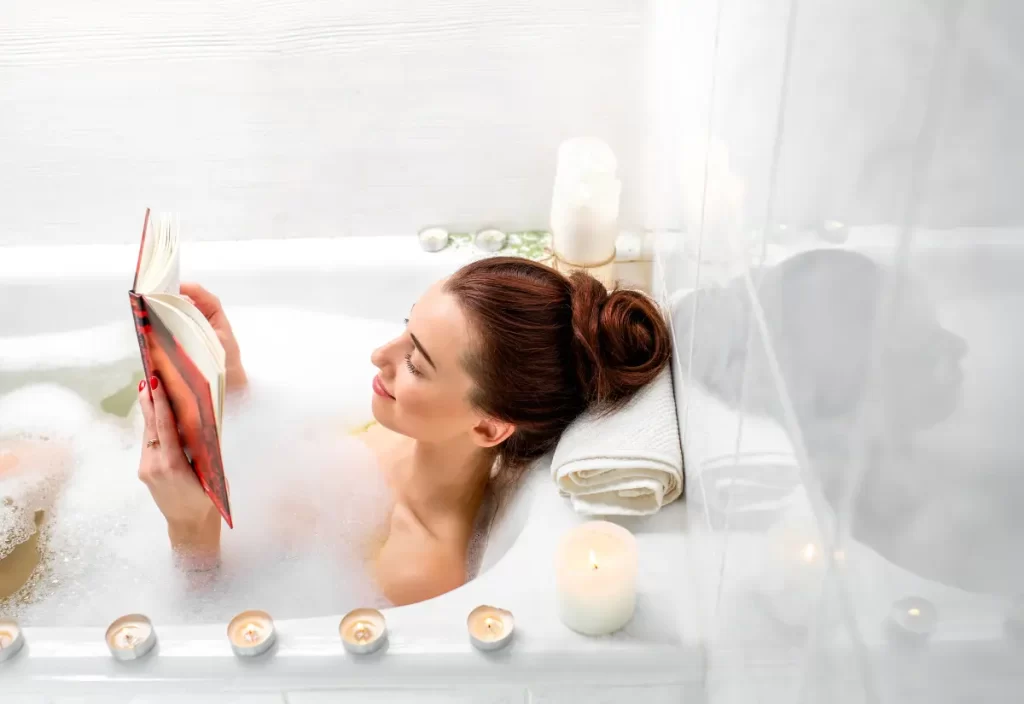The Science of Relaxation: How Does Bathing Reduce Stress
Stress has become an all-too-common companion in our modern lives, largely driven by the demands and pace of our contemporary lifestyle. With the constant connectivity, information overload, work pressures, and daily hustle, it’s no wonder that stress has become a pervasive issue. Our fast-paced world often leaves little room for relaxation and self-care, and this relentless pace can take a toll on our physical and mental well-being. Understanding the sources of stress and adopting strategies to manage it effectively has become an essential aspect of maintaining a balanced and healthy lifestyle in today’s challenging times.
The good news is that relaxation is within our reach, and one of the most effective ways to achieve it is through the simple act of bathing. In this article, we’ll dive deep into how bathing reduce stress, and uncover the physiological and psychological benefits of bathing for stress reduction. Prepare to embark on a journey into the soothing world of hydrotherapy, where science meets serenity.
The Body’s Response to Stress

Stress Hormones: Stress activates the body’s fight-or-flight response, releasing stress hormones such as cortisol and adrenaline. These hormones prepare us for immediate action, but chronic stress can lead to a range of health issues, including anxiety, depression, and cardiovascular problems.
The Role of the Autonomic Nervous System: The autonomic nervous system (ANS) plays a crucial role in stress response. It consists of two branches: the sympathetic (fight-or-flight) and parasympathetic (rest and digest) nervous systems. Bathing helps shift the balance from the sympathetic to the parasympathetic system, promoting relaxation.
The Warm Embrace of Hydrotherapy
Hydrotherapy and Stress Reduction: Warm water immersion, a fundamental aspect of bathing, has been found to have a profound impact on stress reduction. The combination of warm water and buoyancy creates a unique sensory experience that eases tension.
The Soothing Effect on Muscles: As we soak in a warm bath, our muscles relax, releasing built-up tension. The warmth of the water also dilates blood vessels, improving circulation and reducing muscle soreness.

Endorphin Release: Bathing can trigger the release of endorphins, the body’s natural feel-good hormones. This helps alleviate pain and reduce stress, contributing to a sense of well-being.
The Mind’s Retreat
Psychological Benefits of Bathing:
- Meditative Effect: Bathing creates a serene, distraction-free environment that encourages mindfulness and relaxation.
- Stress Reduction Through Sensory Stimulation: The soothing sounds of water, the scent of bath products, and the sensation of warm water on the skin stimulate the senses, reducing stress.
Cortisol Reduction: Studies have shown that regular bathing can lower cortisol levels in the body. This hormone reduction is associated with reduced stress and improved mental health.
The Art of Bathing for Stress Reduction
Tips for Effective Stress-Reducing Baths:
- Set the Scene: Create a calming atmosphere with soft lighting, soothing music, and aromatic candles or essential oils.
- Temperature Matters: Opt for warm, not hot, water to avoid overstimulation.
- Duration: A 15-20 minute soak is generally sufficient to reap the stress-reduction benefits.
- Mindful Breathing: Focus on slow, deep breaths to further enhance relaxation.
The Power of Routine: Consistency is key. Incorporating regular baths into your routine can help manage stress levels over time.

Finding Serenity in the Soak
In a world where stress is a constant companion, bathing offers a sanctuary of serenity and science-backed stress reduction. By understanding how bathing affects our body and mind, we can harness its therapeutic potential to combat stress and promote well-being. So, the next time you draw a bath, remember that it’s not just water and soap; it’s a prescription for relaxation, a remedy for stress, and a science-backed path to serenity.

